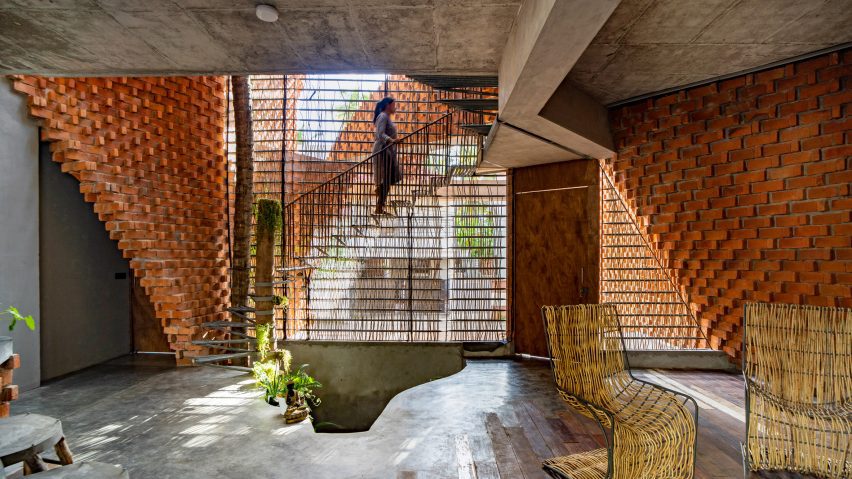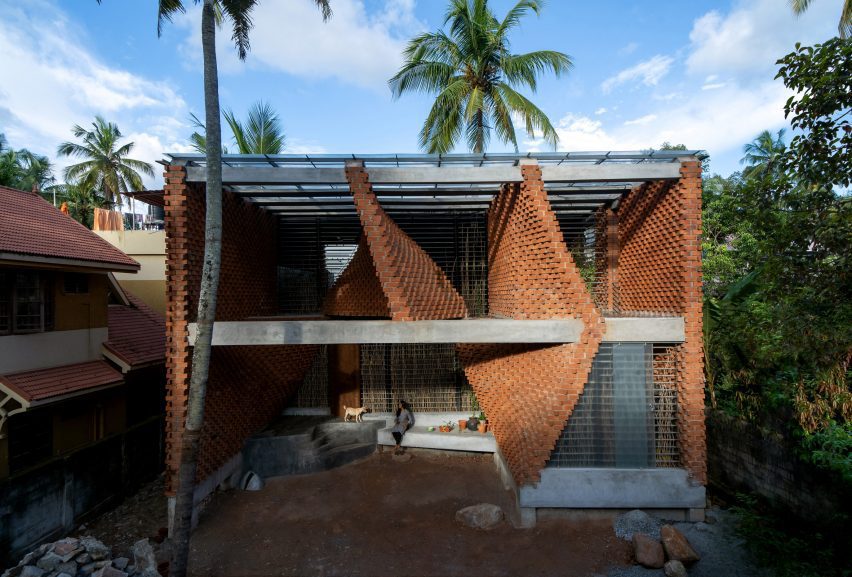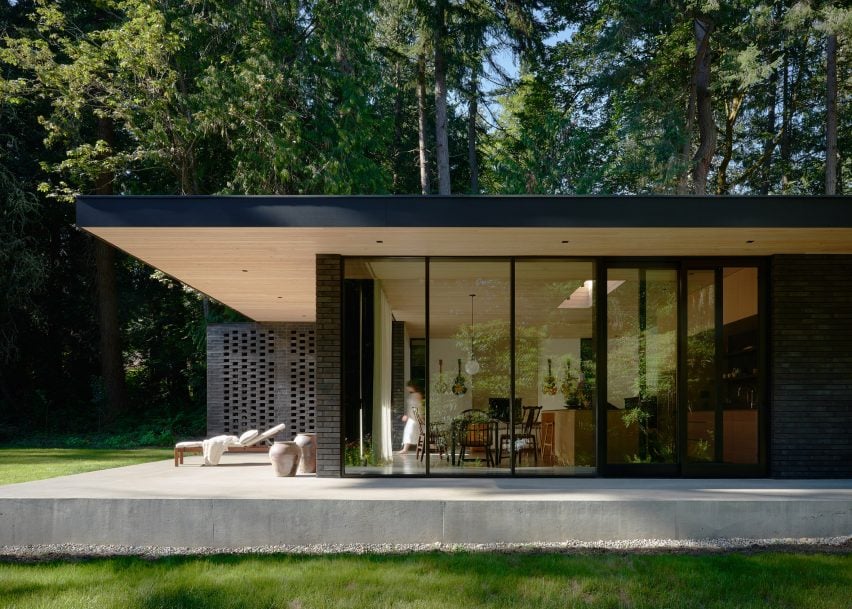
"The Indian architecture education system seems to be fundamentally broken" says commenter
In this week's comments update, readers are discussing Wallmakers founder Vinu Daniel's "elitist" defence of unpaid internships.
The Indian architect and Wallmakers founder defended his position on unpaid internships, which he argues have an important educational benefit, following criticism on Instagram.
Daniel confirmed to Dezeen that people join his studio unpaid but said that he considered them to be students until they have gained the necessary skills in the sustainable construction techniques that his studio specialises in.
"Unfortunately, architectural colleges in India do not teach or practice sustainable technologies," said Daniel.
"Therefore, anyone who enters our practice is essentially a 'student' and we have to teach them our techniques. After learning, they become salaried members of the firm."

"People should boycott any architectural firm that uses free labour"
Readers pilloried Daniel's stance in the comments section, calling it "elitist" and arguing that "no person should work for free".
"Any work deserves a salary anyway – whatever the work is," wrote Pa Varreon.
Jacopo was similarly incensed: "No person should work for free ever," he said. "And nobody should expect it or consider it normal. People should boycott any architectural firm that admittedly uses free labour. Maybe things would then change a little."
He added: "Even if people come out from university unprepared, architects should ask for a reform of the university instead of penalising ex-students as it is not their fault."
Jacopo was far from the only commenter to argue that architectural education needs reform.
"The Indian architecture education system seems to be fundamentally broken," wrote Kasimir in a comment that was upvoted seven times. "On average per week, two Indian students and three recent graduates apply at our office, all of them not expecting to be paid. Apparently, they need to complete an internship to graduate. In India itself, to pay an intern seems to be almost absurd."
Colin_MacGillivray, meanwhile, thought that architecture students are caught between a rock and a hard place: "There's a dichotomy to be solved by every student or recent graduate. Pay money to learn little of value from an institution with often hopeless lecturers. Or pay nothing to and get no pay from an office that teaches the student what architects actually do."
What are your thoughts on unpaid internships? Join the discussion ›

"Dapper, comfortable, well designed"
Also on commenters' agendas this week was a "dapper" coastal house in Washington that "grounds itself to the earth".
Commenters hailed it as "a sober and elegant place to live".
"Lovely, aesthetically quiet house," wrote JZ. "1,700 square feet for what looks to be a four-person residence is just right and more people need to learn to live efficiently as such. The quality of the planning and generous glazing where it's needed makes this multiple times its actual size."
JEA was on the same page: "Really handsomely done. The plan shows how you can make an airy, open home without the bloat we so often see. And if this was mostly built by the clients, I'd like to hire them for my next project!"
Marius called the dwelling "dapper, comfortable [and] well designed", while Pa Varreon heralded it as "a perfect example of a deep homogeneity between inner spaces, surrounding context and overall landscape".
"Really nice," added Tony365. "I would gladly take the ferry over to stay there. Generous overhangs are good to see. I think it will only look better with time."
Do you agree? Join the discussion ›

"It's almost impossible to unionise an architectural firm"
The Wallmakers controversy wasn't the only employment story igniting the comments section this week. News that US labour organiser Architectural Workers United has filed an Unfair Labor Practice charge against Snøhetta divided commenter opinion.
The charges were announced last week by Architectural Workers United (AWU), a sub-division of the national labour union Association of Machinists and Aerospace Workers (IAM).
The AWU alleged that Snøhetta, which has US offices in New York and San Francisco, discriminated against employees during a recent union drive.
"Everything is about class," wrote IDRACULA in response to the news. "It's almost impossible to unionise an architectural firm. The field of architecture is so socially pretentious and unions are just so 'low class'."
"There's a huge divide between the principal upper-class owners of the company and the working-class employees that do all the work and heavy lifting," they added.
"It was meant to happen for a long time now," agreed Pa Varreon. "They get what they deserve to get. People like Wallmakers in India should also take note of this."
Other commenters weren't quite so pro-union.
"AWU alleged that Snøhetta ran a coordinated anti-union campaign," wrote Marius. "Well, duh. Didn't AWU run a coordinated union campaign, just like any union aggressively does? Why is one 'legal' and the other is not? [The] rights of employees cannot exist without the rights of the employers."
Apsco radiales was more measured in their assessment: "I see both sides to unions. They sometimes restrict what companies would like to do, but when there is exploitation, as is often the case in current architectural practices, they have a role to play."
"I've seen young grads work all-nighters and weekends without any compensation because 'we have a tight deadline, and we are already over budget, so let's put in an extra effort'," they added. "If it were to happen once, fine – shiet happens. But each and every job? Having a union would probably put an end to that nonsense."
To unionise or not to unionise? Join the discussion ›
Comments update
Dezeen is the world's most commented architecture and design magazine, receiving thousands of comments each month from readers. Keep up to date on the latest discussions on our comments page and subscribe to our weekly Debate newsletter, where we feature the best reader comments from stories in the last seven days.